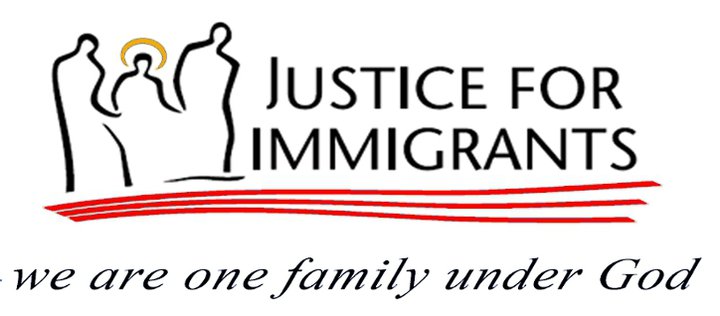Justice for Immigrants: Addressing Root Causes of Migration from Central America
The following statement was issued by Justice for Immigrants (JFI) in December of 2020, as part of the JFI coalition’s collective recommendations for the incoming Biden Administration and the 117th Congress.
The United States faces a humanitarian crisis at the U.S.-Mexico border that demands political, social, and economic attention. Dialogue about this crisis, however, must begin with an acknowledgement that U.S. policy has been ineffective in addressing—and, at times, has exacerbated—the root causes of migration from Mexico, Guatemala, Honduras, and El Salvador. Many factors compel people to migrate north, including poverty, lack of economic opportunity, food insecurity, violence, political crises, government persecution, corruption, and environmental degradation and climate change.
The Catholic Church teaches that people should have the opportunity to thrive in their home countries. If, however, conditions are life-threatening and the safety and wellbeing of families are at risk, people have the right to migrate. To effectively address the root causes of migration, we urge the Administration to develop, fund, and implement policies and programs that promote human security and justice, ensure human rights are respected and impunity ended, improve governance and transparency while reducing corruption and exploitation, and increase economic opportunity and social cohesion for poor and marginalized communities. Engagement of civil society and those most affected by these policies and programs is essential. We urge the Administration to consider the following recommendations:
1. Prioritize integral human development in foreign policy and assistance: As a Catholic community, in partnership with local organizations, we have experienced firsthand success of U.S. programs to reduce poverty and malnutrition, increase youth employment and literacy while promoting policy changes at a national level, foster inclusive partnerships with civil society and the private sector in order to improve the lives of poor and vulnerable persons, and support innovative agriculture techniques to meet new environmental challenges. However, we have also witnessed ineffective policies that neither support poor and marginalized communities nor advance U.S. prosperity or security interests. Therefore, the Biden Administration should:
• Develop a just and humane foreign policy strategy toward the northern countries of Central America that elevates the need to address the root causes of migration and prioritizes integral human development. Integral human development places the dignity of the human person at the center of policy in order to save lives and alleviate suffering, accelerate the end of poverty, inequality, hunger and disease, and cultivate just and peaceful societies rooted in human rights. Central to strategy development should be robust consultation with civil society, including human rights and faith-based organizations, and a full and critical review of current macroeconomic development and security strategies.
• Increase international poverty-reducing humanitarian and development funding to the northern countries of Central America that addresses the root causes of migration, prioritizing local development identified by the communities themselves. This includes increases to the following accounts: Development Assistance, poverty-reducing Economic Support Funds, International Disaster Assistance, Migration and Refugee Assistance, and the Green Climate Fund. Increased account levels should coincide with strengthening local leadership, supporting targeted, effective humanitarian and development models, and harnessing innovative financing.
• Ensure accountability and transparency of economic and security assistance as well as international investment in the northern countries of Central America. Economic and security assistance provided directly to governments should be conditioned on their ability to protect peoples’ rights and dignity and to protect those defending such rights. This assistance should not be used for large-scale and export-driven extractive development. Any investments should include robust, prior consultation with the affected populations, especially indigenous communities. All projects and investments should adhere to environmental, human rights, and labor obligations. And no projects should displace communities or negatively impact the environment or indigenous and community rights. No funds should be used for the complete privatization of public services.
• Support national and international mechanisms that justly combat corruption and impunity in foreign assistance. Enforce, pass, and strengthen U.S. laws that combat corruption and promote transparency.
2. Promote equitable and ethical trade and economic policies: Poverty and economic exclusion have long been a factor driving people to leave their homelands. Pope Francis calls us to turn away from a globalization of indifference and embrace a “fraternal and cooperative globalization.” Catholic social teaching requires economic policies benefit all people, particularly vulnerable populations, not just markets and economies. We hear from Church leaders and other civil society partners in the region how U.S. trade agreements with Central America and Mexico devastated small agricultural producers and businesses, depressed labor conditions and wages, and caused economic displacement, especially affecting indigenous farmers and women. To achieve integral human development and alleviate the conditions that force people to leave their homelands, we need trade and economic policies rooted in dignity and care for our common home. We encourage the Biden Administration and Congress to:
• Support Mexican and Central American recovery from the health and economic devastation of COVID19 by encouraging local production of critical supplies to ensure countries have access to PPE and other health necessities required for combatting the pandemic. Additionally, the U.S. must relieve the crushing burden of external debt held by regional partners so that they can recover and invest in the wellbeing of their people.
• Enforce labor and environmental provisions contained in existing trade agreements and include these in any future agreements. Ensure that any such agreement reflects the values of dignity, care for our common home, and an economy that allows everyone to participate and receive the benefits of that relationship. Special attention should be placed on benefits for women, youth, indigenous communities, small farmers, and businesses. Any trade or investment agreement should be designed to assure a reduction in the need to migrate.
• Combat corruption and ensure greater transparency in the supply chain to address income inequality, environmental degradation, and human trafficking.










Superb analysis and recommendations! I fervently hope that you are heard, though I fear that the Biden administration will do what Clinton and Obama did before, and implement the policies demanded by transnational corporations for infrastructure (roads, ports, airports, dams etc.), resource extraction, and security.